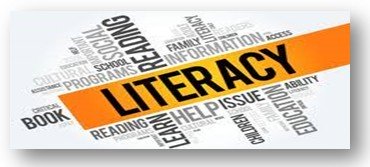Teaching Literacy

Teaching literacy: Explicit and detailed teaching of oral and written language is the key principle of successful reading instruction for young readers. Oral language is the foundation for effective teaching of literacy skills. Teachers that have a good sense of the role of oral language in literacy instruction are best placed to provide their students with the necessary structure to learn new sounds, words, and sentences.
Teachers that provide this structure also give their students the skills to understand and participate in teacher-led classroom discourse. Teachers that know how oral language works are in a prime position to expertly facilitate and scaffold their students’ reading and writing skills.
Teaching Oral Language
The successful learning of literacy skills is largely dependent on students’ oral language skills. Language weaves through and encompasses all aspects of literacy, from the lower level reading skills – the recognition and production of sounds, syllables, letters and morphemes - to higher language skills such as syntactical awareness and reading comprehension.
Effective and proficient reading is language dependent. Language skills should and must be an important focus of reading and writing instruction. Literacy programs that fail to address or target students' language skills in a meaningful way are at risk of ultimately setting students up for reading failure.
Oral Language Systems
Students that are not exposed to nor learn language systems while learning to read are at risk of not knowing how to begin sounding out an unfamiliar word. The same students may later struggle to understand the abstract nature of punctuation and be confused by complex sentences. This may lead to poor reading comprehension skills and impoverished vocabularies. A vitally important task of any teacher is to ensure that students in their care understand the meaning of key words that students encounter in print or through classroom discourse.
Teaching Literacy - Skilled Reading Instruction
Teachers who know about and understand the importance of oral language and its critical link to literacy learning, are armed with the knowledge and capacity to build their students’ phonemic awareness, reading fluency, vocabulary acquisition and comprehension skills.
Students who have strong oral language abilities have the necessary foundation in learning to become fluent readers who read for meaning. Students with good oral language and literacy ability have much of the necessary learning skills to succeed academically and succeed in life.
Updated 11/2017
